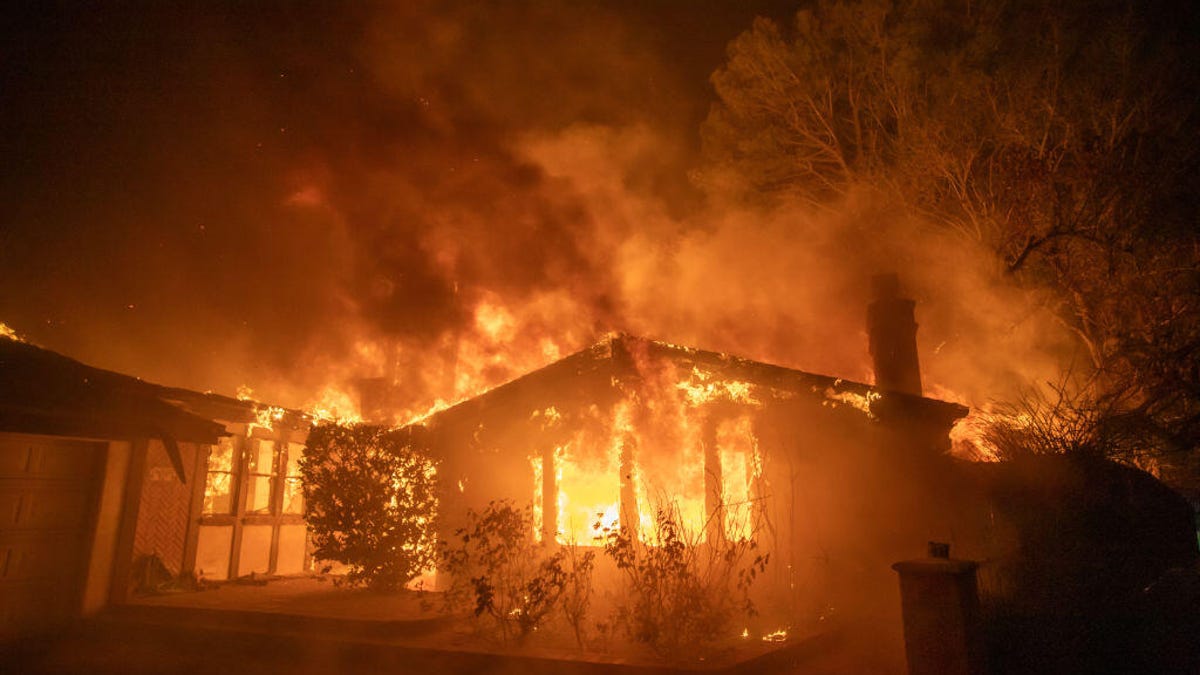In any situation where emotions are running high and money is changing hands, you can expect to find scammers rooting around. Sadly, amid the destruction caused by the Southern California wildfires, scams are quickly starting to bubble up.
California Attorney General Rob Bonta warned of the growing issue of scams targeting people looking to donate to wildfire relief efforts at a press conference on Saturday. The state’s Better Business Bureau chimed in as well, offering advice on what to look for from possible scams.
“We have people with big hearts who want to help, they want to donate, they want to support the victims,” Bonta said. “We also see scammers who are taking advantage of that goodness and that generosity and scamming and defrauding those individuals.”
The wildfires near Los Angeles have been raging since Jan. 7, including the Eaton Fire and Pacific Palisades Fire, the two biggest and most destructive blazes. Over 200,000 people have been evacuated so far, with over 12,000 structures believed to have been destroyed and costs for damages estimated at over $250 billion. With the level of aid and financial help now pouring into the region, it’s created an ideal environment for con artists to run wild.
Read on for all the details you need to keep yourself safe from these scams. For more wildfire coverage, see how victims can avoid illegal rent spikes and find out how to navigate the water advisories caused by the fires.
What sort of scams are taking advantage of LA wildfire victims?
During his press conference, Bonta mentioned that scams have been targeting people trying to donate money or supplies to wildfire victims, setting up fake organizations to swindle those good Samaritans — often designed to trick people with official-sounding names.
Who are these scammers targeting the most?
The scams have targeted the elderly, immigrants and non-English-speaking individuals in particular, Bonta said. These are three groups of people who are frequently targeted by scams overall. But anyone can be taken in if they’re not paying close attention.
What are the key signs of a scam?
Here also, the signs to look out for are common for all varieties of scams. Scammers, the California BBB explained to local outlet KTLA, often engage in “high-pressure” sales tactics, pressuring people into acting quickly and rashly, which can lead to bad decision-making. Be on the lookout for any would-be charities that seem like they want you to give as soon as possible.
Scammers are also more likely to request transactions in cash, or any other sort of payment that makes it difficult or impossible for you to track transactions. Whenever possible, you should only make donations through secure platforms and with credit cards, so that the payments can be tracked in the event of a scam.
Are GoFundMe wildfire charities safe from scams?
GoFundMe said that it’s stepped up its efforts to prevent scams on its site. The popular fundraising platform is working to verify all wildfire-related pages, and for good measure has collected all the verified ones on a special page. The company also gave a shoutout to a number of notable organizations that people can give to without any fear of scams if they want to help wildfire relief efforts, including World Central Kitchen, Pasadena Humane and Baby2Baby.
How do you verify if a charity is real?
Talking about wildfire relief scams, Los Angeles Police Chief Jim McDonnell suggested using online tools like Charity Navigator or the California BBB website to verify the charity you are thinking about giving to. Another solid option is the IRS Tax-Exempt Organization Search Tool.
For more, find out how an app has been helping people track wildfire conditions.
Read the full article here


